Discover The Heart of Healthcare | A Digital Health Podcast
The Heart of Healthcare | A Digital Health Podcast

The Heart of Healthcare | A Digital Health Podcast
Author: Massively Better Healthcare
Subscribed: 11,660Played: 66,798Subscribe
Share
© 2025 Massively Better Healthcare
Description
The Heart of Healthcare podcast gets to the heart of our mission in digital health — to massively improve healthcare for all.
🏆 #1 podcast in the Top 100 Health Tech All time charts
👥 Hosted by digital health veterans Halle Tecco, Michael Esquivel, and Steve Kraus
🎙 New episode every Monday
Join us for authentic and compelling conversations with thought leaders as we deconstruct underlying problems in healthcare, and identify how we can work together to solve them.
186 Episodes
Reverse
Healthcare’s “back-to-school” season delivered no shortage of big headlines! From Epic’s big leap into AI to a looming insurance “blood bath,” Steve and Michael break down the stories that shaped digital health this month.We cover:🖥 Epic’s 200 new AI “colleagues” and what it means for the battle between systems of record vs. systems of action💼 Why healthcare CEOs are cashing record paychecks despite shaky stock performance📉 The warning signs of soaring insurance premiums and their political fallout heading into 2026🤖 Hospitals turning to robots to fill critical workforce gaps⚖ The wild policy divide on how AI should (or shouldn’t) be allowed to practice medicine🎧 How an AI-powered stethoscope could change the way GPs catch heart disease—🙏Thank you to our show sponsor, LookDeep. LookDeep pioneers AI that can see, hear, and respond with care to help hospitals be Ever Present for Every Patient. Learn more at lookdeep.ai/aimee. —📍 Connect with us:Heart of Healthcare websiteLinkedInInstagramTikTok SubstackSee Privacy Policy at https://art19.com/privacy and California Privacy Notice at https://art19.com/privacy#do-not-sell-my-info.
Healthcare costs keep climbing, and yet patients and employers often feel powerless to change the system. What if outsiders—those not steeped in the traditions of healthcare—are actually the ones best positioned to fix it?This special episode is a reshare from The Benefits Playbook podcast, where Halle joins Collective Health CEO Ali Diab. Together, they unpack what it takes to make health benefits simpler, more transparent, and more consumer-focused.We cover:🏥 The growing “consumer awakening” in healthcare and what it means for employers🧾 How Ali’s personal fight with insurance denials led to building a new kind of health company💡 Why outsiders can sometimes see solutions insiders overlook🤖 Where AI can actually improve care—and where human advocates are still indispensable💊 The GLP-1 dilemma for employers balancing access, equity, and costAbout our guest:Ali Diab is the CEO and Co-Founder of Collective Health, the World’s leading independent third-party health benefit plan administrator (TPA), integrating AI-powered health plan administration, health benefit plan member navigation and advocacy, and digital benefits hub.Ali has more than 25 years of experience leading high-growth technology organizations, and prior to co-founding Collective Health, was Vice President of Product Management and Business Operations at AdMob by Google. Previously, Ali held executive and management positions at Goldman Sachs, Microsoft, and Yahoo!. Ali is a graduate of Stanford and Oxford Universities and is a Member of the Board of Advisors of the Stanford Institute for Economic Policy Research (SIEPR).—🙏 If you're enjoying the show, we would so appreciate it if you left us a review!—📍 Connect with us:Heart of Healthcare websiteLinkedInInstagramTikTok See Privacy Policy at https://art19.com/privacy and California Privacy Notice at https://art19.com/privacy#do-not-sell-my-info.
Hospitals are under immense pressure: burned-out clinicians, outdated systems, and rising costs have made delivering care harder than ever. Tanay Tandon, founder and CEO of Commure, shares how his team is rethinking hospital infrastructure by combining AI, forward-deployed engineering, and a provider-first mindset. Backed by over $750M in funding, Commure is using strategic M&A and next-gen tools like ambient AI to reduce administrative burden, improve revenue cycle operations, and protect clinical staff.We cover:📉 How Commure grew claims volume 5x without hiring more staff🧠 Why the “copilot” era of AI may give way to true automation in back-office tasks🏥 Tanay’s prediction for a simpler, decentralized hospital system—powered by software💰 What it means to take capital from General Catalyst’s Health Assurance Fund and build for its customer network📰 How Commure navigated negative press around its business model and acquisitions—About our guest:Tanay Tandon is CEO at Commure, a $6B healthcare software company. The business uses LLMs to help supercharge the productivity of clinicians, healthcare administrators, and finance teams. Commure has raised over $500 million, is backed by Sequoia Capital, General Catalyst, Initialized, YCombinator, and NVIDIA. The company’s technology powers daily workflows for 250,000 providers at over 100 major health systems.—🙏 If you're enjoying the show, we would so appreciate it if you left us a review!—📍 Connect with us:Heart of Healthcare websiteLinkedInInstagramTikTok See Privacy Policy at https://art19.com/privacy and California Privacy Notice at https://art19.com/privacy#do-not-sell-my-info.
One in four Americans is enrolled in Medicaid, yet the system designed to support them is constantly at risk—underfunded, politically vulnerable, and often overlooked.Dr. Alastair Bell, President and CEO of Boston Medical Center Health System, shares how his organization is reimagining what it means to care for underserved populations, while managing nearly 40% of Massachusetts’ Medicaid enrollees. In this conversation, we explore the financial realities of running an “essential” hospital system, the opportunities and pitfalls of Medicaid ACOs, and why AI might deepen inequity if essential providers are left behind.We cover: 🏥 What makes an “essential” hospital system (and why the term matters) 📊 How BMC manages risk across one of the largest Medicaid plans in New ⚖️ Why risk adjustment in Medicaid populations is still falling short 💊 What the 340B drug pricing program really means for safety-net hospitals 🧠 The promise (and peril) of AI in essential care settings—About our guest:Dr. Alastair Bell oversees the comprehensive system strategy and operations of BMCHS' entities, including BMC, Boston Accountable Care Organization, Clearway Health, and the WellSense Health Plan.Prior to joining in 2012, Dr. Bell was a leader in the North American payor and provider practice at McKinsey and Company, advising a range of national and international healthcare organizations and leading large-scale transformation programs. He received his Doctor of Medicine from the University of Oxford, his Master of Arts in physiology from the University of Cambridge, and his Master of Business Administration with distinction from Harvard Business School. Dr. Bell currently serves as co-chair of the board for the Boston Children’s Chorus.—🙏 If you're enjoying the show, we would so appreciate it if you left us a review!—📍 Connect with us:Heart of Healthcare websiteLinkedInInstagramTikTok See Privacy Policy at https://art19.com/privacy and California Privacy Notice at https://art19.com/privacy#do-not-sell-my-info.
Three simple questions plague every American seeking healthcare: Where should I go? When can I be seen? And how much will it cost me? Despite seeming basic, these questions have remained largely unanswerable—until now.In this episode, we explore how Heather Fernandez, co-founder and CEO of Solv, is building the infrastructure behind same-day care for 210 million Americans. We discuss how AI is finally cracking the code on price transparency and why workflow complexity can be a competitive moat in healthcare.We cover: 💰 Why price transparency has been so elusive and how AI tools are positioned to finally solve it 🤖 How AI is eliminating "garbage work" and turning front desk staff into healthcare superheroes ⚡ Why workflow expertise is a durable advantage for healthcare startups🚀 How to build a culture of AI at your startup💡 Why "intractable" problems may now be solvable—About our guest: Heather Fernandez is the CEO and co-founder of Solv Health, a leading platform redefining access to everyday healthcare. Solv connects consumers with a national network of providers, enabling same-day appointment availability and price transparency for patients across the country. For providers, the Solv platform acts as a growth copilot, leveraging AI to eliminate unnecessary administrative work, optimize existing capacity, and modernize the patient experience through our voice agent Maya and ClearPay price transparency. Solv integrates with EHR systems to streamline scheduling, intake, messaging, patient payments, and insights. To date, Solv has powered over 100 million visits nationwide with providers like Yale New Haven Health, GoHealth and ZoomCare.Heather has built her career around intuitive, transparent consumer experiences, previously helping scale Trulia through its acquisition by Zillow. She serves on Atlassian’s Board of Directors and is a graduate of UC Berkeley and Stanford GSB.—🙏 If you're enjoying the show, we would so appreciate it if you left us a review!—📍 Connect with us:Heart of Healthcare websiteLinkedInInstagramTikTok See Privacy Policy at https://art19.com/privacy and California Privacy Notice at https://art19.com/privacy#do-not-sell-my-info.
A new federal law is reshaping how healthcare is paid for and delivered in America.In this episode, Steve sits down with health policy expert Joe Mercer to unpack the details of the One Big Beautiful Bill Act. It’s the most significant healthcare legislation since the ACA, with ripple effects across Medicaid, rural hospitals, and the ACA exchange.We cover: 🧾 What Medicaid work requirements could mean for coverage and churn 🏥 Why safety-net and rural hospitals are bracing for impact 💸 How changes to provider taxes and state-directed payments shift funding dynamics 📉 What happens when ACA subsidies start to expire 🧰 Where there may be operational opportunities for coverage tech and patient engagement solutions—About our guest:Joseph Mercer - Managing Director, Marwood Group is a senior healthcare policy subject matter expert with Marwood and is the firm leader for healthcare services coverage out of Marwood's Washington DC Office. Additionally, Mr. Mercer operates as a firm leader across Marwood's DC-focused research coverage, policy diligence support and retainer practice offerings. Prior to joining Marwood in 2015, Mr. Mercer worked at the Centers for Medicare & Medicaid Services (CMS) serving as a Program Analyst at the Center for Consumer Information and Insurance Oversight (CCIIO). From his tenure at CMS, Mr. Mercer brings with him substantial expertise covering government health insurance programs with a focus on ACA exchange, Medicare Advantage and Medicaid policy issues and catalysts. Mr. Mercer holds a JD from Washington & Lee University School of Law and a BA in Economics from the College of William and Mary.—🙏 If you're enjoying the show, we would so appreciate it if you left us a review!—📍 Connect with us:Heart of Healthcare websiteLinkedInInstagramTikTok See Privacy Policy at https://art19.com/privacy and California Privacy Notice at https://art19.com/privacy#do-not-sell-my-info.
Fresh off a $243 million fundraise from Oak HC/FT and A16Z, Ambience Healthcare is on a mission to kill medical billing — and build “Iron Man suits for doctors.”Today we sit down with co-founder and CEO Mike Ng to talk about how Ambience is tackling one of healthcare’s most painful problems: the administrative burden that eats up 73% of a clinician’s day. We cover: 🏥 How Ambience tackles both clinical documentation and medical coding simultaneously (and why this dual approach was initially controversial with investors) 📊 The metrics he obsesses over to know if they’re succeeding🎯 Why specialty-specific AI models outperform general-purpose solutions in complex medical subspecialties 📈 Real-world results from Cleveland Clinic's five-way ambient listening comparison study—About our guest: Mike Ng is the co-founder and CEO of Ambience Healthcare, developing AI-powered clinical documentation platforms for healthcare providers. Before starting Ambience, Mike ran a care delivery organization, giving him firsthand insights into the challenges of healthcare operations, physician management, and the gap between software demos and real-world implementation. His experience spans both the operational and technological sides of healthcare, informing Ambience's approach to building AI solutions that work seamlessly within existing clinical workflows.—🙏 If you're enjoying the show, we would so appreciate it if you left us a review!—📍 Connect with us:Heart of Healthcare websiteLinkedInInstagramTikTok See Privacy Policy at https://art19.com/privacy and California Privacy Notice at https://art19.com/privacy#do-not-sell-my-info.
Dexcom generates more than $4 billion in annual revenue and has a market cap north of $30 billion, making it one of the biggest digital health companies in the world. And it all started with a better way to measure blood sugar.In this episode, Halle is joined by Kevin Sayer, CEO of Dexcom, the company that pioneered continuous glucose monitoring (CGM). Under Kevin’s leadership, Dexcom scaled from $40 million to $4 billion in revenue, became the standard of care for people with diabetes, and is now expanding into consumer wellness with its direct-to-consumer product, Stelo.We cover:📈 How Dexcom scaled 100x without relying on acquisitions📱 Why real-time glucose data is so powerful—and who needs it beyond diabetes🤝 Building trust with both doctors and patients⚖️ What GLP-1s mean for Dexcom’s business📦 The shift from regulated med device to consumer tech📊 The future of metabolic health (and what else their sensors might measure next)—About our guest:Kevin Sayer is the Chairman of the Board of Directors and Chief Executive Officer of Dexcom.Kevin assumed the role of CEO in January 2015 and became Chairman of the Board in July 2018. Kevin has also served as our President since 2011. He held the role of Chief Operating Officer from January 2013 until January 2015. Kevin has served as a member of Dexcom’s Board of Directors beginning in November 2007, prior to his role as Chairman and CEO.Prior to leading Dexcom, Kevin held various management positions in his prior roles. He served as Chief Financial Officer of Biosensors International Group, Ltd., Executive Vice President and Chief Financial Officer of Specialty Laboratories, Inc., Chief Financial Officer of MiniMed, Inc., and Vice President and General Manager of Medtronic MiniMed after the acquisition of MiniMed by Medtronic.Kevin is a Certified Public Accountant (inactive) and received a Bachelor’s degree and a Master's degree in Accounting and Information Systems from Brigham Young University.—🙏 If you're enjoying the show, we would so appreciate it if you left us a review!—📍 Connect with us:Heart of Healthcare websiteLinkedInInstagramTikTok See Privacy Policy at https://art19.com/privacy and California Privacy Notice at https://art19.com/privacy#do-not-sell-my-info.
More than a thousand AI medical devices have FDA clearance, yet fewer than two percent of radiologists actually use them.In this episode, Steve sits down with Dr. Brian Anderson—CEO and co‑founder of the Coalition for Health AI—to unpack why trust, transparency, and regulation could make or break the next wave of AI‑powered medicine.We cover:🤖 Why only 2% of radiologists use AI tools despite 1,000+ FDA‑cleared devices🔍 What transparency really means and how model cards act like AI “nutrition labels”🏛️ How federal vs. state regulators could speed up—or stall—AI‑driven care💊 The imminent arrival of autonomous AI doctors that prescribe meds—and who’s liable when things go wrong🚑 Brian’s bullish vs. bearish scenarios for health AI over the next three yearsAbout our guest: Dr. Brian Anderson is President and CEO of the Coalition for Health AI (CHAI), leading the development of technical standards and best practices for MLOps in healthcare, including governance, evaluation, and monitoring in Health AI Assurance Labs. Previously, he was Chief Digital Health Physician at MITRE, where he led initiatives like Advancing Clinical Trials at the Point of Care (ACT@POC) and co-led MITRE’s largest oncology R&D effort supporting the Cancer Moonshot.A recognized expert in digital health and Health AI, Dr. Anderson has led work in clinical decision support, interoperability, and health IT standards. He formerly led the Informatics and Network Medicine Division at Athenahealth and has served on national health IT committees with the ONC. He earned his MD with honors from Harvard Medical School, a BA in Social Anthropology from Harvard College, trained at Massachusetts General Hospital, and practiced at Greater Lawrence Family Health Center. He lives in the Boston area with his wife and three children.—🙏 If you're enjoying the show, we would so appreciate it if you left us a review!—📍 Connect with us:Heart of Healthcare websiteLinkedInInstagramTikTok See Privacy Policy at https://art19.com/privacy and California Privacy Notice at https://art19.com/privacy#do-not-sell-my-info.
When Andrew Lacy launched Prenuvo, the medical establishment largely dismissed it as fringe. Now, some of those same skeptics are collaborating with him on research.In this episode, Halle and Michael sit down with Andrew, founder and CEO of Prenuvo, to unpack what it takes to build trust in an unconventional idea. He opens up about how a moment of personal reckoning led him to pivot from tech to healthcare—and why he believes early detection should be a fundamental right.We cover:📊 How they’ve built the world’s largest dataset of whole-body MRI imaging, and what they’re doing with that data✨ What happens when Kim Kardashian shares about your company on social media, unprompted💡 Going from being dismissed by the medical establishment to forming major research partnerships🧠 What Prenuvo’s dataset is revealing about early disease markers, brain perfusion, and aging📈 The economics of prevention vs. treatment—and why large employers are on their minds—About our guest:Andrew Lacy is the CEO and founder of Prenuvo, the leading proactive whole-body MRI. With a mission to redefine healthcare through proactive screening, Prenuvo has become the forefront of preventive medicine. Since its inception, the company has conducted over 100,000 scans, alerting 2.5-5% of patients to life-threatening conditions, from aneurysms to lesions to tumors. This achievement solidifies Prenuvo as the largest private provider of whole-body MRI, pioneering a new standard in proactive healthcare.A seasoned entrepreneur, Lacy has a proven track record of transforming bold ideas into industry-defining ventures. He played a pivotal role in developing the iPhone apps ecosystem as co-founder of Tapulous, a mobile app company later acquired by the Walt Disney Company. Beyond his entrepreneurial pursuits, Lacy’s career spans high-impact roles in strategy, finance, and product development at global institutions, including McKinsey & Company and Disney.In addition to leading Prenuvo, Lacy is an active advisor and investor in a diverse range of startups, applying his entrepreneurial expertise to help the next generation of innovators. With a passion for leveraging technology to improve lives, Lacy is shaping a healthcare future that prioritizes early detection, prevention, and patient empowerment.Show Notes: This is not a sponsored show, but our guest has generously provided a discount code for listeners. Take $300 off your Prenuvo scan with our listener code: Prenuvo.com/HOH —🙏 Thanks to Flexpa for sponsoring this episode. Flexpa is refactoring healthcare. Connect to 300+ health plans through a single, secure integration to access patient-consented, identified claims data instantly.—📍 Connect with us:Heart of Healthcare websiteLinkedInInstagramTikTok See Privacy Policy at https://art19.com/privacy and California Privacy Notice at https://art19.com/privacy#do-not-sell-my-info.
In their first podcast since going public, Omada Health CEO Sean Duffy joins us to reflect on the journey to bend the curve of chronic disease.From walking away from the traditional PMPM model to staying grounded in clinical outcomes, Sean shares hard-earned lessons from over a decade of building Omada—from a startup in Rock Health’s Chinatown office to IPO. We cover:🔧 Killing PMPM before it killed them (and the business model shift that made Omada viable)🎯 Designing digital experiences around actual outcomes and not just engagement💡 What sets Digital Health 2.0 apart, and why the next wave of companies needs to focus on care delivery, not just navigation or access 📈 What going public taught Sean about readiness, discipline, and running a mission-driven business at scale—About our guest:Sean co-founded Omada in 2011 with the aim of merging medical trends and cutting edge technology to revolutionize health care of chronic disease as we know it. Today, he proudly serves as CEO and has been instrumental in steering Omada toward global recognition, such as being hailed a potential “medical triumph” by The New York Times, and one of Fast Company’s 50 most innovative companies in the world. A longtime devotee of healthcare and technology, Sean also founded a largely automated lifestyle business around Excel Everest, the interactive Microsoft Excel training tool he created. He formerly covered healthcare innovation as writer and editor for Medgadget, a popular medical technology blog.As CEO of Omada, Sean cares deeply about honing the organization’s exceptional products, values-driven approach to healthcare, and the innovative ways in which primary care can continue to better humanity.More recently, Sean has been spending more and more of his free time learning how to build and fly first-person view drones.See Privacy Policy at https://art19.com/privacy and California Privacy Notice at https://art19.com/privacy#do-not-sell-my-info.
Dare we say digital health is back? The IPOs are IPOing, and startups (at least the AI ones) are back raising mega rounds. In this month’s Digital Health Download, Halle and Steve break down the recent headlines, including a blockbuster funding cycle for AI tools, a dramatic breakup between Novo Nordisk and Hims, and why Oregon’s new law could shake up how startups structure clinical care.We cover:📈 What the return of IPOs signals for the second half of 2025🦄 New ways of building and funding healthcare unicorns💔 The fallout from Novo Nordisk's split with Hims over compounded GLP-1s⚖️ Are we trading faster innovation for a lower standard of evidence in cancer treatment?⚠️ Why Oregon’s new anti-private-equity law could be a warning sign for startups📚 Rethinking med school as AI reshapes the future of the profession—Show Notes:Rock Health Unicorn AnalysisBloomberg’s cancer drug pricing investigationNEJM on changes to medical educationOregon Senate Bill 951 SummaryNovo Nordisk terminates partnership with Hims over compounding concerns—🙏 If you're enjoying the show, please leave us a review!—📍 Connect with us:Heart of Healthcare websiteLinkedInInstagramTikTokSee Privacy Policy at https://art19.com/privacy and California Privacy Notice at https://art19.com/privacy#do-not-sell-my-info.
What does one do after selling their company to Amazon for $1 billion? Start a new one, of course.In this episode, Halle sits down with TJ Parker, pharmacist, entrepreneur, and advocate for consumer-centric digital health. After co-founding PillPack and selling it to Amazon, TJ stayed on for four years helping build Amazon Pharmacy. Now, he’s back at it with General Medicine, a new company focused on making care as seamless as any other online transaction.We cover:🧾 Why pricing opacity and short-term incentives make care so frustrating📦 What TJ learned from building PillPack—and how the Amazon acquisition actually played out🏥 His vision for General Medicine, and why his second time around feels more like sport than survival📉 The wild ride of taking on PBMs (and winning) 🪄 The one change he’d make to fix healthcare’s misaligned incentives—About our guest:TJ Parker is a general partner with Matrix and is the co-founder and former CEO of PillPack. As CEO of PillPack, in just five years, TJ raised over $100M in financing, grew the company to more than a thousand employees, and successfully sold the business to Amazon for $1 billion in 2018. Today, TJ is focused on starting, investing in, and advising other healthcare and consumer focused businesses. Most recently, he founded and is the lead investor in General Medicine.—🙏 If you're enjoying the show, we would so appreciate it if you left us a review!—📍 Connect with us:Heart of Healthcare websiteLinkedInInstagramTikTok See Privacy Policy at https://art19.com/privacy and California Privacy Notice at https://art19.com/privacy#do-not-sell-my-info.
Most medical care is backed by varying types of evidence, yet we apply higher standards to digital health tools before they’re trusted, adopted, or reimbursed.In this special episode, guest host Lucia Savage is joined by Dr. Vindell Washington of Verily and Dr. Aaron Carroll of AcademyHealth for a candid conversation about the uneven standards we apply to digital versus traditional care. Together, they explore how we define evidence, whose voices shape that definition, and what it takes to build trust in an AI-powered healthcare future.We cover:🧪 Why much of traditional care isn’t based on randomized controlled trials🔍 What types of validation make digital tools trustworthy to patients, payers, and regulators👩⚕️ Whether generative AI should be evaluated like other medical devices📣 How to integrate patient perspectives into evaluating health tech📉 The risks of requiring more proof from digital tools than from “standard” care📊 Why transparency—not perfection—is key to building trust in innovation—About our guests:Lucia Savage is a nationally recognized expert in healthcare regulation, digital health, privacy, and AI. She is the Chief Privacy and Regulatory Officer at Omada Health, a virtual-first care provider that has served over one million people with evidence-based cardio-metabolic and physical therapy programs. Lucia also serves on the boards of AcademyHealth and Tidepool, and advises ClaimsHero, which uses AI to simplify healthcare claims appeals. She was previously Chief Privacy Officer at the Office of the National Coordinator for Health IT under the Obama Administration, and has testified before Congress on health data and digital care. Lucia was named one of Rock Health’s Top 50 in Digital Health in 2021 and is a contributing author to two bestselling books on digital medicine and health technology.Vindell Washington, MD, MS, is the Chief Clinical Officer and Head of Health Equity at Verily. Dr. Washington provides clinical leadership across Verily’s research and care solutions and currently leads the company’s Center of Excellence for Health Equity. Dr. Washington previously served as the CEO of Onduo, Verily’s care solution for chronic condition management. Prior to Verily, he was Chief Medical Officer and EVP at Blue Cross Blue Shield of Louisiana where he oversaw network operations and contracting, medical policy and quality, disease management, and pharmacy benefits. Dr. Washington also served as National Coordinator for Health Information Technology (ONC), where he provided high-level executive direction and leadership for ONC programs, operations, and policies. Dr. Washington also served in several capacities at Franciscan Missionaries of Our Lady Health System including, President of the Health System Medical Group, Chief Medical Information Officer, and as the leader of health system quality and information technology. He received his medical degree from the University of Virginia and his MS in healthcare management from the Harvard University School of Public Health.Dr. Aaron E. Carroll is President and CEO of AcademyHealth and a nationally recognized pediatrician, health services researcher, and science communicator. Formerly Chief Health Officer and Distinguished Professor of Pediatrics at Indiana University, his work has focused on pediatric health IT, decision analysis, and healthcare policy. He is the author of The Bad Food Bible, co-author of three books on medical myths, and a former contributor to The New York Times and The Atlantic. He also co-edits the health policy blog The Incidental Economist and hosts the YouTube channel and podcast Healthcare Triage, where he explains health research and policy to broad audiences. —🙏 If you're enjoying the show, we would so appreciate it if you left us a review!—📍 Connect with us:Heart of Healthcare websiteLinkedInInstagramTikTok See Privacy Policy at https://art19.com/privacy and California Privacy Notice at https://art19.com/privacy#do-not-sell-my-info.
Most AI in healthcare promises superintelligence—but what if that’s the wrong goal entirely?In this episode, Michael and Halle speak with Othman Laraki, co-founder and CEO of Color Health, to talk about why real-world care doesn’t need a perfect model—it needs a better system. Othman breaks down how Color evolved from a consumer genetics startup into a nationwide virtual cancer clinic, why most diagnostics businesses fail, and how AI can actually support clinicians without trying to replace them.We cover:🤖 Why chasing “healthcare superintelligence” misses the point🧠 How Color uses AI to speed up care and not take over decision-making🏥 Their pivot from genetic testing to full-scale clinical delivery📉 How they cut time to treatment in half and boosted screening by 70%🤝 Partnering with OpenAI, Memorial Sloan Kettering, and major employers—About our guest:Othman Laraki is CEO and co-founder of Color Health, a platform for healthcare delivery, providing the technology, infrastructure, and logistics required to distribute large-scale health initiatives to diverse populations. Color is changing the way patients access cancer care through a first-of-its-kind, vertically integrated, and fully owned Virtual Cancer Clinic. Powered by a 50-state oncologist-led team of cancer-focused clinical experts, Color provides proactive, evidence-based care that is accessible to anyone, anytime, and at every step of the cancer journey. Prior to Color, Othman was an early Product leader at Google, where he worked on performance infrastructure and client-side software, including the Google Chrome browser. After leaving Google, he co-founded MixerLabs, which was one of Twitter's first acquisitions. Othman holds degrees in computer science and management from Stanford University and the Massachusetts Institute of Technology. He is a long-time investor and advisor to leading companies such as Pinterest, AngelList, Coinbase, Slack, Instacart, Gitlab, and others.—🙏 Thanks to Flexpa for sponsoring this episode. Flexpa is refactoring healthcare. Connect to 300+ health plans through a single, secure integration to access patient-consented, identified claims data instantly.—🙏 If you're enjoying the show, we would so appreciate it if you left us a review!—📍 Connect with us:Heart of Healthcare websiteLinkedInInstagramTikTok See Privacy Policy at https://art19.com/privacy and California Privacy Notice at https://art19.com/privacy#do-not-sell-my-info.
Over half of Americans now live with at least one chronic condition, yet our healthcare system still revolves around episodic, reactionary care instead of continuous, coordinated support.We talk with Dr. Jaewon Ryu—former CEO of Geisinger and now CEO of Risant Health—about how integrated delivery systems are reshaping the way care is paid for and delivered. With decades of experience spanning medicine, law, government, and leadership at some of the most respected healthcare institutions, Dr. Ryu offers a rare inside look at what it takes to scale value-based care in a fragmented system.We cover:🏥 What an integrated delivery system actually looks like—from both the patient and provider perspective📉 Why two patients with the same condition often face very different outcomes based on their insurance💡 How value-based care can ease workforce shortages and improve access without cutting corners📈 What Risant Health is doing to help more systems scale value-based care without sacrificing local autonomy—About our guests:Dr. Jaewon Ryu, MD, JD, is the CEO of Risant Health, a nonprofit created by Kaiser Permanente to expand and scale value-based care across diverse, multi-payer, multi-provider health systems. Previously, he served as President and CEO of Geisinger, Risant Health’s inaugural member. With a mission to improve community health outcomes and healthcare affordability, Risant Health aims to bring the benefits of coordinated, value-based care to a broader national landscape.Dr. Ryu brings deep cross-sector experience, having held leadership roles at Humana, University of Illinois Hospital, Kaiser Permanente, and in federal government at CMS and the Department of Veterans Affairs. He began his career as a practicing corporate healthcare attorney. From 2018 to 2024, he served two terms on MedPAC, advising Congress on Medicare policy, and currently sits on the boards of NCQA, The Commonwealth Fund, and the KP Medical Foundation. Dr. Ryu earned his B.A. from Yale, and both his M.D. and J.D. from the University of Chicago, completing his emergency medicine residency at Harbor-UCLA.—🙏 If you're enjoying the show, we would so appreciate it if you left us a review!—📍 Connect with us:Heart of Healthcare websiteLinkedInInstagramTikTok See Privacy Policy at https://art19.com/privacy and California Privacy Notice at https://art19.com/privacy#do-not-sell-my-info.
Is the digital health IPO drought over? Halle and Michael dig into the Hinge Health IPO and what it signals for the return of digital health companies to the public markets. They explore how much equity founders typically hold at IPO, the growing role of private equity, and why down rounds aren’t the deal-breaker they once were.Plus: Elizabeth Holmes’ husband launches a head-scratching startup, a former McKinsey healthcare partner faces prison time, and OpenAI teams up with the FDA.We cover:📈 What Hinge Health’s IPO means for digital health exits📊 A new analysis of founder equity and CEO pay at IPO🤖 OpenAI’s behind-the-scenes work with the FDA⚖️ Why a startup is suing Epic for alleged anti-competitive behavior🧪 The eyebrow-raising new diagnostics startup from Elizabeth Holmes’ husband🚨 The McKinsey partner sentenced in the opioid crisis investigation—Show NotesHow Much Equity Do Founders Own at IPO? Read the full analysis on SubstackEpic Faces Another Antitrust Lawsuit More on the Epic lawsuit via Fierce HealthcareOpenAI and the FDA Are Talking Drug Reviews Wired’s coverage of OpenAI-FDA discussionsMcKinsey Partner Sentenced in Opioid Probe NYT on McKinsey's legal fallout—🙏 If you're enjoying the show, please leave us a review!—📍 Connect with us:Heart of Healthcare websiteLinkedInInstagramTikTokSee Privacy Policy at https://art19.com/privacy and California Privacy Notice at https://art19.com/privacy#do-not-sell-my-info.
US healthcare has more unproductive labor and more unstructured data than any other industry, making it both vulnerable to disruption from generative AI and especially unprepared for it.That’s the provocative thesis of Eric Larsen, president of TowerBrook Advisors. In this episode, he joins host Steve Kraus to explain why generative AI is unlike any other technology we've seen—and why the $4.9 trillion healthcare sector is uniquely exposed.We cover:🧠 What makes GenAI a true “general purpose technology”—and how it compares to past innovations like the microprocessor or the internet🏥 Why healthcare has failed to adopt past tech shifts, and why this time could be different🔐 The role of the “F-150”—the 150 leaders who effectively control the US healthcare system🤝 Whether incumbents or insurgents will win the AI race in healthcare📉 Why GenAI will reduce labor costs and what that means for health systems that spend over half their budgets on people🌐 How China is sprinting ahead in deploying medical superintelligence🧬 What a compressed century of biomedical discovery could look like—and why Larsen believes we’re approaching longevity escape velocity—About our guests:Eric Jon Larsen is President of TowerBrook Advisors and a member of the healthcare leadership team at TowerBrook Capital Partners, a $30 billion AUM investment firm based in New York and London. TowerBrook invests across private equity, structured minority, and growth opportunities, with a strong focus on healthcare, partnering with health systems, payers, and other strategics. Notably, TowerBrook is the first mainstream private equity firm to achieve B Corp certification, reflecting its commitment to responsible business practices.Eric is a nationally recognized healthcare strategist with a global advisory portfolio spanning CEOs and boards of leading healthcare organizations. He spent 25 years at The Advisory Board Company—five of those as President—advancing best practices in healthcare delivery worldwide. Following the firm's 2017 acquisition by Optum (UnitedHealth Group), Eric co-led strategic partnerships and market development efforts at UnitedHealth. He is also a Venture Partner at Thrive Capital and SignalFire, and serves on several digital health boards, including Somatus and Contessa Health. Beyond healthcare, Eric is active in the arts as Chairman of The Washington National Opera and trustee of The Washington Ballet. A Georgetown University graduate, he lives in Washington, D.C., and Miami with his wife and three children.—🙏 If you're enjoying the show, we would so appreciate it if you left us a review!—📍 Connect with us:Heart of Healthcare websiteLinkedInInstagramTikTok See Privacy Policy at https://art19.com/privacy and California Privacy Notice at https://art19.com/privacy#do-not-sell-my-info.
Over 160 million Americans are served by Optum, yet many still don’t fully understand what it actually does—or why it matters.Dr. Patrick Conway, newly appointed CEO of Optum and former head of CMS Innovation Center and Blue Cross NC, joins Steve for a wide-ranging discussion on the state of healthcare delivery, affordability, and the potential of value-based care at a national scale. With experience spanning the frontlines of medicine to top government and corporate leadership, Conway breaks down how Optum aims to improve care while controlling costs—and why he continues to practice as a pediatric hospitalist on weekends.We cover:💡 What Optum actually does—and how it operates across care delivery, pharmacy, and data📉 How value-based care is being scaled, and why two-sided risk models matter🧠 Using AI to reduce cycle times, drive affordability, and improve clinical decision-making💊 What’s broken—and what’s working—in the U.S. pharmacy system🧑⚕️ What leaders, policymakers, and physicians need to know to truly fix healthcare🧵 How personal tragedy, frontline stories, and government service continue to shape Conway’s leadership today—About our guests:Patrick Conway, MD, MSc, was named chief executive officer of Optum Rx in August 2023. In this role he leads an integrated pharmacy care services organization that is making drugs more affordable and creating a better experience for consumers, filling more than 1.5 billion adjusted retail, mail and specialty drug prescriptions annually. He joined Optum in February 2020 andpreviously served as the chief executive officer of Care Solutions, where he led a portfolio of care continuum businesses serving over 70 million people across acute and post-acute care, care in the home in-person and virtually, mental and behavioral care benefits and delivery, broad population and complex disease health management, specialty care and government health services.Dr. Conway was president and chief executive officer of Blue Cross and Blue Shield of North Carolina from 2017-19. From 2011 to 2017, he served as Deputy Administrator for Innovation and Quality at the Centers for Medicare and Medicaid Services and as director of the Center for Medicare and Medicaid Innovation and the agency’s Chief Medical Officer. Before joining CMS, he oversaw clinical operations and quality improvement at Cincinnati Children’s Hospital Medical Center.Dr. Conway is a practicing pediatric hospitalist. He was elected to the National Academy of Medicine in 2014, received the President’s Senior Executive Distinguished Service Award, and was a White House Fellow from 2007 to 2008. He earned his MD with high honors from Baylor College of Medicine, residency training at Boston Children’s Hospital, and Master of Science in clinical epidemiology from the University of Pennsylvania.—🙏 Thanks to Flexpa for sponsoring this episode. Flexpa is refactoring healthcare. Connect to 300+ health plans through a single, secure integration to access patient-consented, identified claims data instantly.—🙏 If you're enjoying the show, we would so appreciate it if you left us a review!—📍 Connect with us:Heart of Healthcare websiteLinkedInInstagramTikTok See Privacy Policy at https://art19.com/privacy and California Privacy Notice at https://art19.com/privacy#do-not-sell-my-info.
Women make 80% of healthcare decisions and outspend men two to one on care—yet when it comes to designing, funding, and scaling health tech, they’re still treated like a niche.In this episode, we break down the broken flywheel holding women’s health innovation back including fewer growth-stage investments, limited exits, and a system not built to serve women as the primary users of care. I’m joined by Carolyn Witte, co-founder of Tia, and Katie Drasser, CEO of Rock Health, to talk about what needs to change—and how we get there.We cover:📱 What Rock Health’s latest report says about women as digital health consumers🚫 Why men shouldn’t be the benchmark for women’s health💸 How women’s health companies struggle to raise beyond Series A (and what to do about it)👩⚕️ Why every company should be a women’s health company💡 What founders and investors need to do differently to unlock women’s health at scale—About our guests:Katie Drasser is CEO of RockHealth.org, leading a team of experts in health equity, social enterprise, and design to encourage more equitable innovation in digital health. Drasser has launched programs that address complex global issues with a focus on public health innovation and the role of innovative financing and leadership in systems change. Previously, she curated health content for the Aspen Ideas Festival and was managing director of the Aspen Global Innovators Group, steering global leadership programs to address poverty alleviation and human rights. Drasser has worked internationally on HIV/AIDS treatment strategies in Romania, private health services delivery in Myanmar, and the scale up of Kenya’s national emergency medical system. She designed a network of charter schools and developed Good Capital, a venture fund that invests in social enterprises like the Hub Bay Area and the Social Capital Markets Conference.Carolyn Witte is a visionary healthcare entrepreneur dedicated to creating a personalized, preventive, and human-centered healthcare system. As the founding CEO of Tia — the leading tech-enabled primary care provider for women — she pioneered a new model of “whole-women’s” healthcare, integrating virtual and retail-style clinics, technology, and a multidisciplinary care teams to transform the business and experience of going to the doctor. A former strategist at Google’s Creative Lab, Carolyn brings an interdisciplinary approach to healthcare innovation through design, technology, and brand. Her latest passion project is The XX Factor — a newsletter and community advancing the women’s health category through hard won lessons, shared learnings and collective action. She’s been recognized by Fast Company, Forbes, and Inc. Magazine as a trailblazer for women in business.—Show notes:Women in focus: understanding women as digital health consumers (Rock Health)There’s a Growth-Stage Cliff Plaguing Women’s Health Startups—🙏 If you're enjoying the show, we would so appreciate it if you left us a review!—📍 Connect with us:Heart of Healthcare websiteTikTok (NEW!)LinkedInInstagramSee Privacy Policy at https://art19.com/privacy and California Privacy Notice at https://art19.com/privacy#do-not-sell-my-info.
 United States
United States


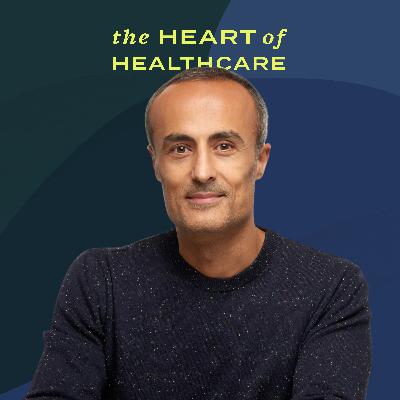
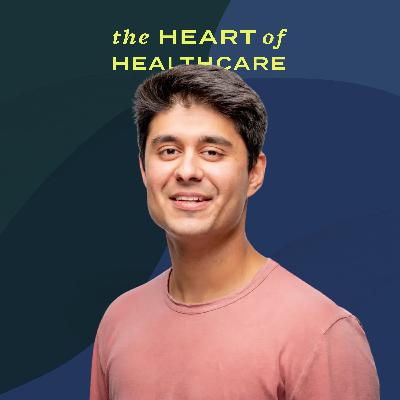
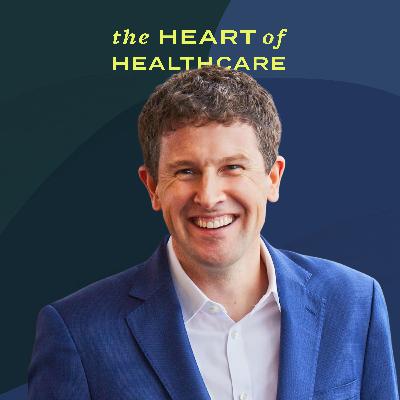
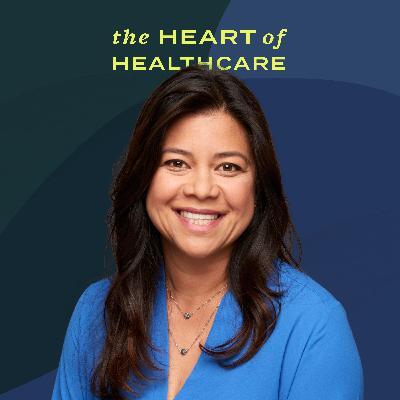

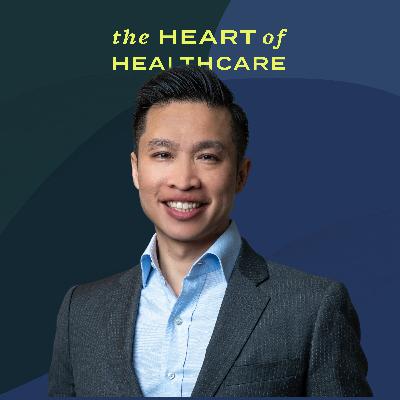

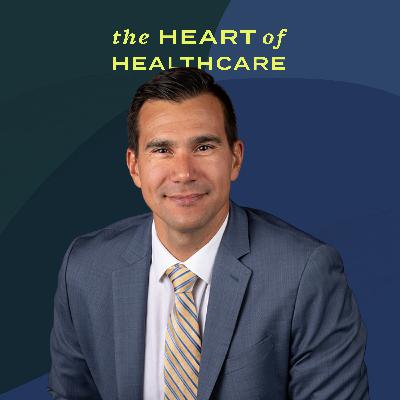
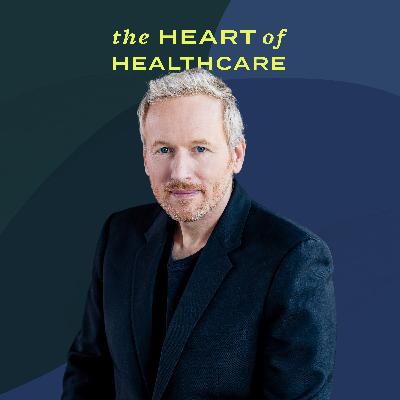
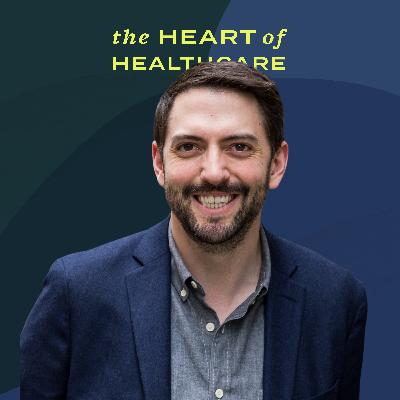
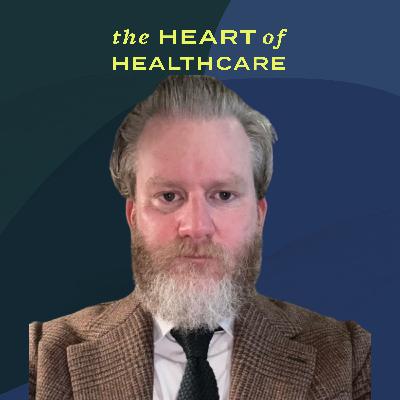
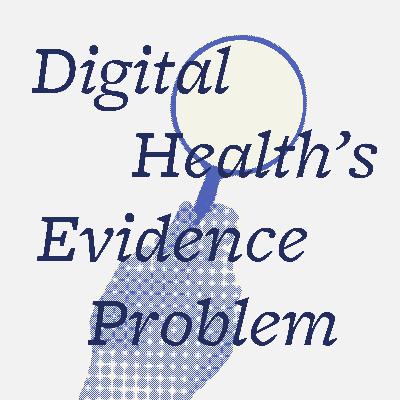
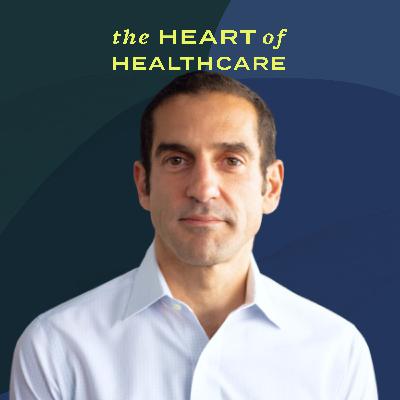
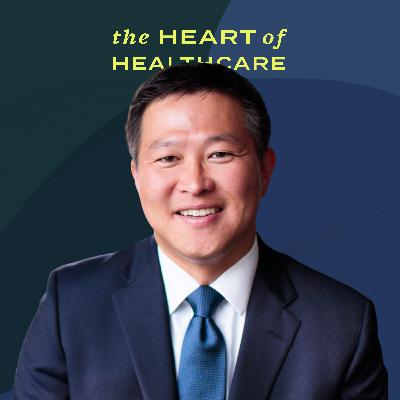





It's definitely an excellent episode of your awesome podcast. thank you for sharing it. I'd like to know how can I find the script? I mean if this could be possible for non native speakers, it would be great! anyway, keep up the good work 💪🧠